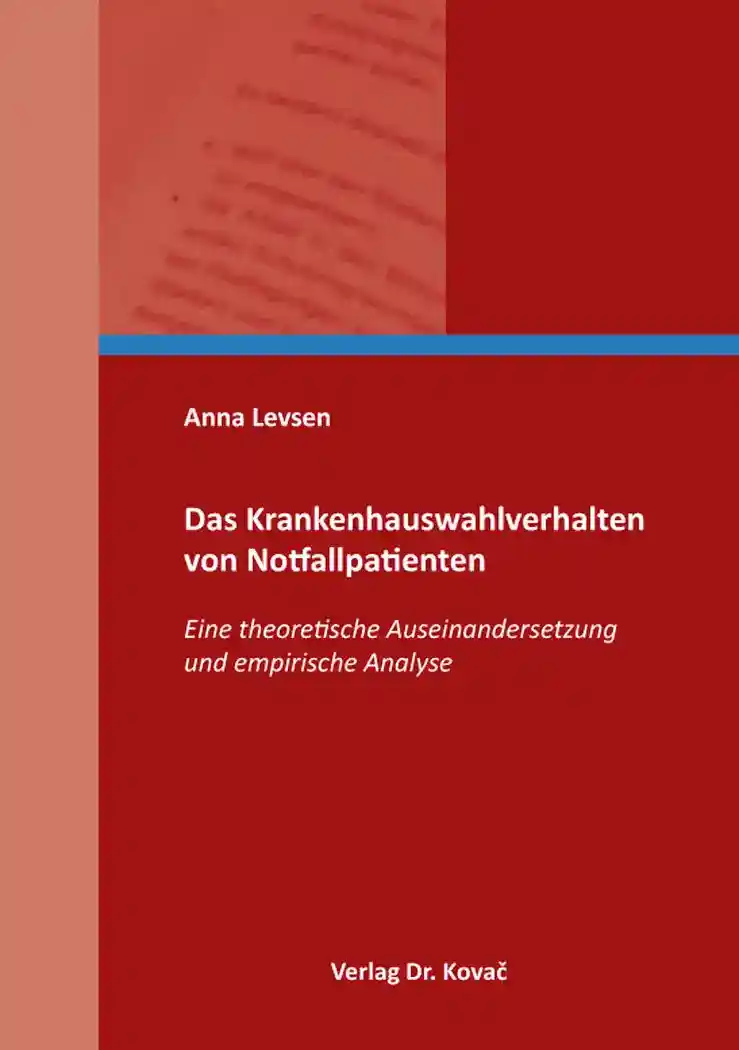Anna LevsenDas Krankenhauswahlverhalten von Notfallpatienten
Eine theoretische Auseinandersetzung und empirische Analyse
Gesundheitsmanagement und Medizinökonomie, volume 51
Hamburg 2019, 232 pages
ISBN 978-3-339-10672-8 (print) |ISBN 978-3-339-10673-5 (eBook)
About this book deutschenglish
The study focuses on hospital choice behavior of emergency patients. A significant share of annual growth in in-patient hospitalization is based on emergency patients. The question of emergency patients’ hospital choice behavior becomes increasingly significant when combining the finding above with the trend that hospitals cover an increasing share of emergency treatments compared with other types of medical providers. A comprehensive literature review showed no pertinent research in the field of preference measurement (in particular discrete choice experiments) relating to hospital choice by emergency patients. The author poses four questions, relating to drivers of patient choice behavior, third party advisors with impact on the choice behavior, and features of hospital emergency wards in order to close the identified research gap.
A three step methodology was chosen. In a first step, hypotheses were drafted and validated through an expert interview series. In a second step, two methodic approaches were applied for further data gathering. On the one hand, an observational study among emergency patients revealed choice behavior and choice situation insights. On the other hand, a discrete choice experiment focusing on preference measurement of the preferences regarding choice of hospital emergency wards for the treatment of a medical emergency was conducted.
The empirical study revealed that patients actively drive hospital choice in an emergency situation. Key third parties advising on the choice include – depending on path to hospitalization – family doctors, medical specialists, relatives, friends and acquaintances as well as rescue service personnel. Decision drivers comprise hospital proximity and previous experiences with the hospital. The discrete choice experiment showed in addition that a hospital where previous experiences were made by the patient has the highest level of attraction. Hospital recommendations also have high impact on choice. With increasing distance to travel, likelihood of choice declines.
Keywords
Discrete-Choice-ExperimentEntscheidungstheorieGesundheitsökonomieKrankenhausKrankenhausmanagementKrankenhauswahlKrankenhauswahlverhaltenNotaufnahmenNotfallambulanzNotfallpatientenPatientenpräferenzPräferenzmessungWahlentscheidungIhr Werk im Verlag Dr. Kovač

Möchten Sie Ihre wissenschaftliche Arbeit publizieren? Erfahren Sie mehr über unsere günstigen Konditionen und unseren Service für Autorinnen und Autoren.
